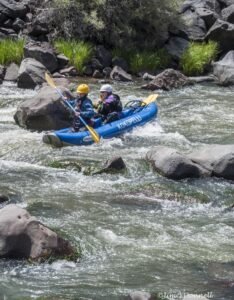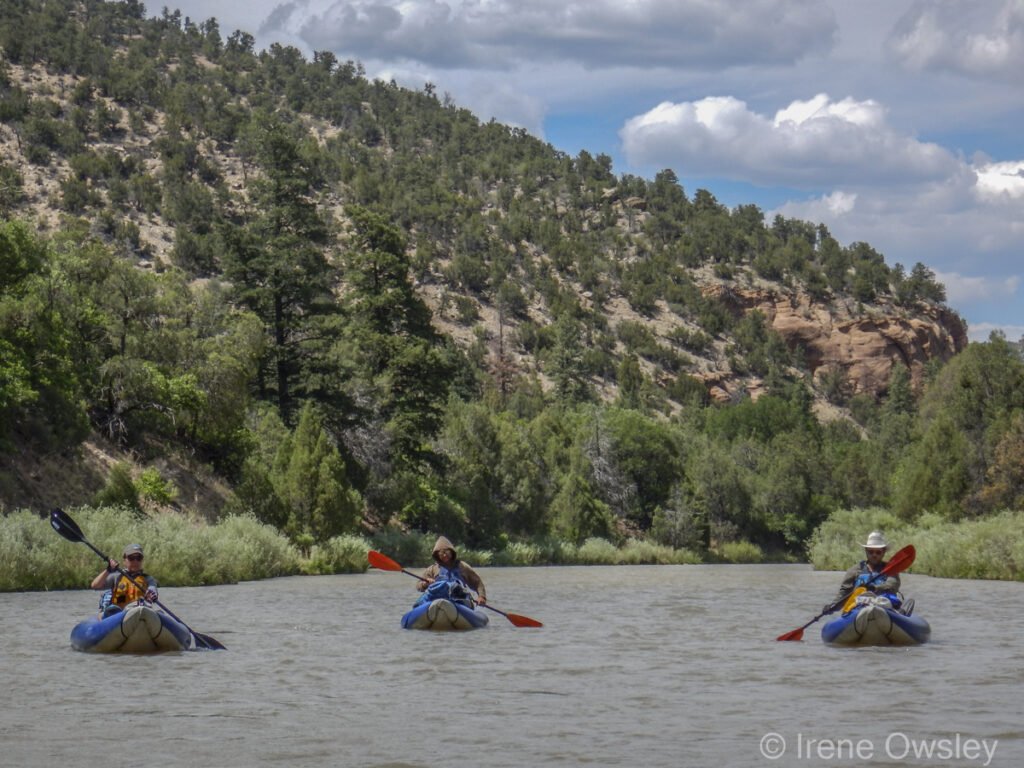
Be safe on the river
Rivers provide wonderful recreation and relaxation experiences, but they can also be dangerous when you are unprepared.
Here are ways to protect yourself and enjoy your river adventures.
No matter whether you’re on the water or on land near a river, always tell someone where you are going, when you expect to return, and who to call if you don’t.
Be prepared for variable weather. New Mexico is famous for its rapid change in weather conditions. Depending on locale and season, hypothermia is a real risk if you fall into the water. Dehydration and sunburn can also spoil your day.

Reduce the chance of injury by wearing protective footwear and appropriate clothing for all river-related recreation activities. Always bring your first aid kit.
Match your river and recreation skills to where you plan to go and what you plan to do. Always check on the most current river and/or trail conditions. Local outfitters or government agencies such as the Bureau of Land Management or Forest Service can provide valuable information about your destination.
Bring an emergency satellite communicator such as an InReach or Spot device. Some new cell phones have the ability to send messages via satellite. Check ahead of time to see if yours has that capability.
Boating and other on-water recreation activities like tubing, paddleboarding, waterplay, and swimming require an extra degree of caution.
Never boat or float alone. Have another boat or two on your river trip.
Wear a Coast Guard-approved Type III personal flotation device (PFD, otherwise known as a life jacket) at all times when on the water. Even the most experienced can find themselves in an unexpected situation and a life jacket can save your life.
Know the water hazards for your float trip whether snags, downed trees, rapids, or high or low water flows, which, depending on the river, can increase the difficulty of rapids and present challenges for river ingress and/or egress. Hazards also include fencing across streams and rivers. These are illegal in New Mexico, but may be present and dangerous.


